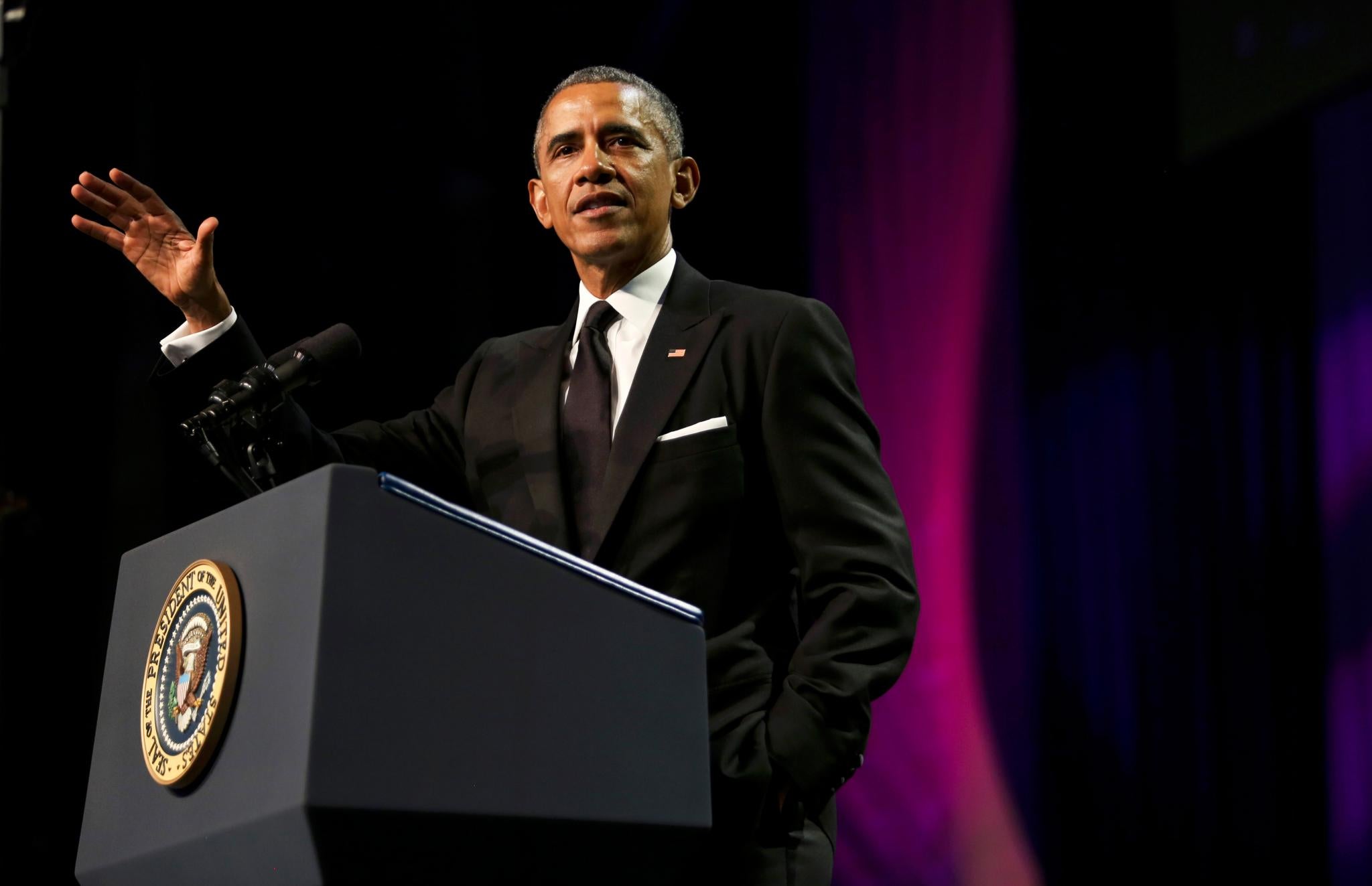
“The only thing that separates women of color from anyone else is opportunity,” said Viola Davis last night when accepting her Emmy which, incidentally, made her the first Black woman in history to be given the award for best actress in a TV drama.
Maybe Davis was listening to President Barack Obama’s speech that same weekend, when he addressed a crowd at the annual Congressional Black Caucus Foundation Legislative Awards Dinner about needed opportunities for Black women. (Or Obama had been listening to us).
It was an inspirational speech from the President, whose position allows him to set goals and to lead the nation on policies. I doubt we’ll hear anything like it from any of the sixteen Republican candidates, and so far, nothing like it from any of the Democratic candidates for President.
The President mentioned Amelia Boynton Robinson, whose hand he held at the 50th Anniversary of the March of Selma. He said, rightly, that women were the “life force of the movement…women strategized boycotts and organized marches…behind the scenes they were the thinkers and doers making things happen each and every day.” It’s still true today. Let me equally assert that Black women are the backbone of the Black family and community. Their voting strength alone is worth respecting.
The President further said: “It’s thanks to Black women that we’ve come a long way since the days when a girl like Ruby Bridges couldn’t go to school. When a woman like Amelia couldn’t cast her vote. When we didn’t have a Congressional Black Caucus — and its 20 women members.”
Sojourner Truth was a northern slave who “walked away” from her master in the moonlight, and became nationally known for her speeches for women’s rights. She famously told a man in her audience, “that little man in black there, he says women can’t have as much rights as men, ’cause Christ wasn’t a woman!…Where did your Christ come from? From God and a woman! Man had nothing to do with Him.”
“Of course, [women are] also a majority of my household,” Obama continued. “So I care deeply about how they’re doing.”
“Opportunities” was the keyword of Viola Davis’s brief speech, and “Opportunities” was the keyword from the President.
“When women of color aren’t given the opportunity to live up to their God-given potential, we all lose out on their talents;” he said, “we’re not as good a country as we can be.
“We might miss out on the next Mae Jemison or Ursula Burns or Serena Williams or Michelle Obama.”
I would add, we might miss out on Viola Davis, or you.
One solution: Equal pay for equal work. Another solution: raise the minimum wage, “because women are not getting paid what they’re worth.”
Our voices must be more persistent, more assertive, more positive than the voices that tell Black women to ‘know your place,’ or that whisper we can’t dream of this, or that career, because it’s out of our reach.
The President concluded by remarking that, as he marched across the Edmund Pettus Bridge, he “thought about all those women who came before us, who risked everything for life and liberty and the pursuit of happiness, so often without notice, so often without fanfare. Their names never made the history books. All those women who cleaned somebody else’s house, or looked after somebody else’s children, did somebody else’s laundry, and then got home and did it again, and then went to church and cooked — and then they were marching.
“And because of them, Michelle could cross that bridge. And because of them, they brought them along, and Malia and Sasha can cross that bridge. And that tells me that if we follow their example, we’re going to cross more bridges in the future. If we keep moving forward, hand in hand, God willing, my daughters’ children will be able to cross that bridge in an America that’s more free, and more just, and more prosperous than the one that we inherited. Your children will, too.”
Obama’s message is one of self-help, faith, and hope. He based it on the strength Black women demonstrated in taking us from our earliest days through the Civil War, the Civil Rights marches, to our present struggles—until we reach the God-given goal of equality.